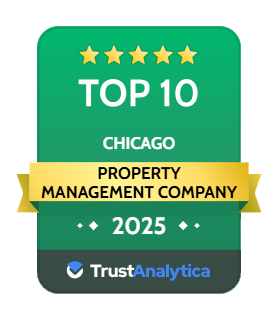Most of the time we get calls from prospective landlord clients, they’ve run into issues with their tenants or rental properties. When life is good, property management can almost seem easy. But as soon as things get complicated, our phone starts ringing. One of the most common calls we get is about tenants that are not paying rent. So today we are going to discuss how to handle a tenant who’s not paying rent.
Hi everyone, Jason Marcordes from Landmark Property Management here. Rental property can be an amazing way to grow your wealth but in order for that investment to be successful, you need your tenants to pay their rent. Today, we’re discussing your options as a Landlord for when tenants stop paying rent.
When this happens you typically have three options.
Option Number 1: Work with the tenant on a payment plan.
As soon as your tenant misses their rent payment, you want to get a hold of them as soon as possible. We do this through an aggressive follow up sequence of calls, texts, emails, and ringless voicemails. Now, once we get a hold of them we try to determine the root cause of the delay in payment - specifically whether this is an income issue or an expense issue and what measures they’ve already taken to rectify the issue. If it’s an expense issue, meaning the car broke down and it cost them $2,000 to fix, it’s relatively easy to come up with a payment plan that works for both parties. We start with asking if they have friends or family they can borrow from but if that’s not an option, we find out when their next pay day is and how much of their check they can put down toward their balance. It’s very important to get exact dates and amounts. It’s also very important to get this in writing and signed or agreed upon by the tenant. If they can’t pay the balance in full, we’ll typically allow them to split it over the course of 3 months.
Now, if it’s an income issue like they lost their job - you want to see what the game plan is for finding a new job and paying the rent going forward. This is much trickier because there is no guarantee that they’ll find another job and even if they do, it’s typically a minimum of 4 weeks before they get their first paycheck. A lot of times when it’s an income disruption like a job loss, we work with the tenant to relocate them immediately and get the current property rerented and cash flowing ASAP.
That being said, we always recommend trying to work it out and keep the current tenant, if possible. If you’re able to, it’s a win-win and if it truly is a good tenant that is going through a rough patch, typically rough patches are temporary and you’ll be happy you stuck with that tenant over the long haul. Rental property is really hard to make cashflow when you are turning over tenants frequently.
Option Number 2: Eviction
Evictions typically require you to serve the tenant or post a notice to pay and allow them a certain time period to cure the notice. In Chicago, for non-payment of rent we are required to hand serve 5-day notices which gives the tenant 5 days from the service date to cure the notice by paying their rent. There are a ton of nuances around this so you definitely want to check with your local laws. For example, in Illinois, if you serve that 5 day notice and a few days later the tenant pays even a single dollar, it voids the notice and you need to begin the process again. If no money is paid and the 5 day right to cure has expired, you are able to file the notice with the court. The eviction process and timeline will vary greatly depending on what county you’re in. For example, for Chicago, which is in Cook County, evictions can take anywhere from 6 to 12 months whereas parts of Indiana and Texas evictions can be done in as little as 3-4 weeks. The cost and timeline of evictions in your area will determine whether or not this is your best option.
Option Number 3: Cash For Keys
Cash for keys is when you pay the tenant to leave on agreed upon terms. This one hurts - I get it - no one wants to reward a tenant for not paying their rent but if you live in a tenant friendly state, it may be your best option from a business standpoint. For example, if you have a rental property in Chicago and the rent is $1500 per month, you can wait out the 10 month eviction which is going to cost $15,000 in unpaid rent, or get immediate possession for a few thousand dollars. The added benefit to the cash for keys option is that you have much more control over the condition of the unit when it’s returned. If you go the eviction route, there’s a high likelihood that the property will be trashed on the way out. When we structure a cash for keys agreement, the property must be returned in good condition and broom swept. Not only do you avoid 10 additional months of unpaid rent, you also save thousands of dollars in unit turn costs. It’s important to note, you do want to have a solid cash for keys agreement in writing and the cash should actually be in the form of a money order or cashier’s check, not actual cash.
Navigating tenant payment issues can be one of the toughest challenges in managing your own rental property but I hope this helps. If you have questions about any of this or if we can help in any way, consider us at Landmark Property Management a resource, we’re happy to help. Feel free to check out our website at ChicagosPropertyManagement.com or give us a call.





.png)


